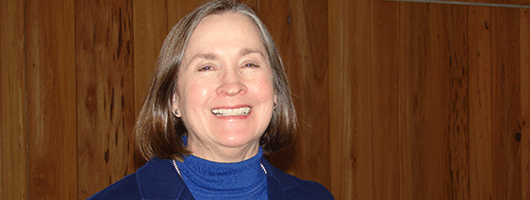 Affirmative Action and Campus Diversity
Affirmative Action and Campus Diversity
Susan Lee, J.D. | Director
Administration Building 247A | (574) 520-4384 or (574) 520-4524 | aaoffice.iusb.edu
About Affirmative Action and Campus Diversity
Indiana University pledges itself to continue its commitment to the achievement of equal opportunity within the university and throughout American society as a whole. In this regard, Indiana University will recruit, hire, promote, educate, and provides services to persons based upon their individual qualifications. Indiana University prohibits discrimination based on arbitrary considerations of such characteristics as age, color, disability, ethnicity, gender, gender identity, marital status, national origin, race, religion, sexual orientation, or veteran status.
Indiana University shall take affirmative action, positive and extraordinary, to overcome the discriminatory effects of traditional policies and procedures with regard to the disabled, minorities, women, and veterans.
Indiana University prohibits harassment on any of the above protected basis including racial harassment, sexual harassment and sexual assault.
For more information or to file a complaint, you may contact the Office of Affirmative Action and Campus Diversity which has been designated to address these concerns.
Other offices that can assist you include the Office of Judicial Affairs, 574-520-5524 or 877-462-4872 Extension 5524, Room 115A Administration Building and Human Resources, 574-520-4398, Administration Building Room 223A.
Indiana University Policy Against Sexual Harassment
Harassment on the basis of sex is a violation of federal and state law. Indiana University does not tolerate sexual harassment of its faculty, staff, or students. Individuals who believe they are victims of sexual harassment, as well as those who believe they have observed sexual harassment, are strongly urged to report such incidents promptly. Indiana University will investigate every sexual harassment complaint in a timely manner and, when there is a finding of sexual harassment, take corrective action to stop the harassment and prevent the misconduct from recurring. The severity of the corrective action, up to and including discharge or expulsion of the offender, will depend on the circumstances of the particular case.
Once a person in a position of authority at Indiana University has knowledge, or should have had knowledge, of conduct constituting sexual harassment, the University could be exposed to liability. Therefore, any administrator, supervisor, manager or faculty member who is aware of sexual harassment and condones it, by action or inaction, is subject to disciplinary action.
A. Definitions
Following federal guidelines, Indiana University defines sexual harassment as follows:
Unwelcome sexual advances, requests for sexual favors, and other verbal or physical conduct of a sexual nature constitute sexual harassment when:
- submission to such conduct is made either explicitly or implicitly a term or condition of an individual’s employment or academic advancement;
- submission to or rejection of such conduct by an individual is used as the basis for employment or academic decisions affecting such individual; or
- such conduct has the purpose or effect of unreasonably interfering with an individual’s work or academic performance or creating an intimidating, hostile, or offensive working or learning environment.
B. Application
This University policy is designed to protect all members of the University community. It applies to relationships among peers as well as to superior/subordinate relationships. It also applies to all individuals, regardless of their gender or sexual orientation.
C. Provisions
- Faculty, staff, and students have the right to raise the issue of sexual harassment. Further harassment against complainants or retaliation against complainants or others who participate in the investigation of a complaint will not be tolerated. Appropriate and prompt disciplinary or remedial action will be taken against persons found to be engaging in such further harassment.
- The University will deal with reports of sexual harassment in a fair and thorough manner, which includes protecting, to the extent possible and to the extent permitted by law, the privacy and reputational interests of the accusing and accused parties.
- Education is the best tool for the prevention and elimination of sexual harassment. Each dean, director, department chair, and/or administrative officer is responsible within his/her area of jurisdiction for the implementation of this policy, including its dissemination and explanation.
- It is the obligation and shared responsibility of all members of the University community to adhere to this policy.
D. Enforcement Principles
Enforcement and implementation of this sexual harassment policy will observe the following principles:
- Each campus must have procedures—consistent with notions of due process—for implementing this policy including where complaints are made, who investigates complaints, how complaints are resolved, what procedures are available for appeals, and how records are kept.
- The Campus Affirmative Action Officer shall serve as a resource with regard to interpretation of sexual harassment guidelines.
- Confidentiality of information relating to investigations of complaints of sexual harassment shall be maintained to the extent practical and appropriate under the circumstances and to the extent permitted by law. Individuals charged with implementing this policy shall share information with regard to given incidents of sexual harassment only with those who have a “need to know” in order to implement this policy.
- Investigations must be conducted promptly and thoroughly.
- Whether particular actions constitute sexual harassment will be determined from the facts, on a case-by-case basis. The university will look at the record as a whole, as well as the context in which the alleged misconduct occurred.
- Both the charging party and the respondent will be notified of the outcome of the investigation.
- In the event it is found that sexual harassment has occurred, corrective action, up to and including discharge or expulsion of the offender, will be taken through the appropriate channels of the university. The corrective action will reflect the severity and persistence of the harassment, as well as the effectiveness of any previous remedial action. In addition, the university will make follow-up inquiries to ensure the harassment has not resumed and the complainant has not suffered retaliation.